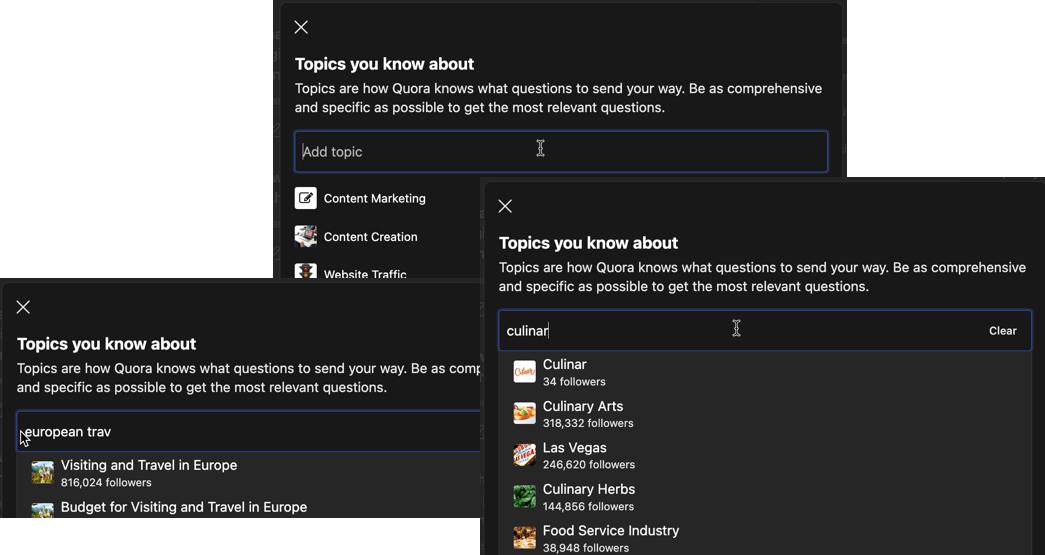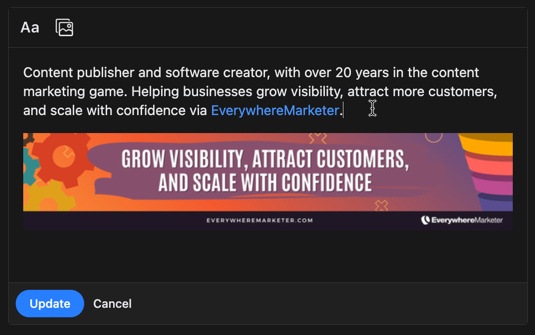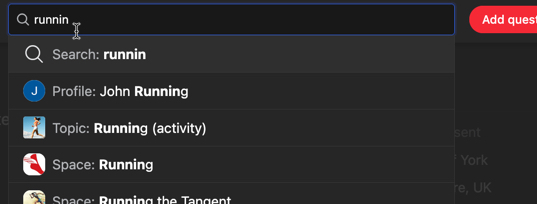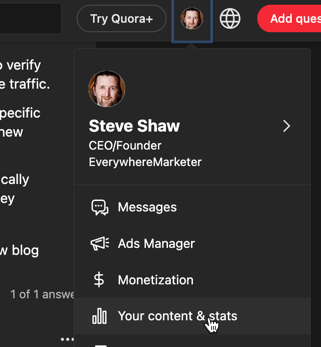Struggling to drive consistent traffic to your blog?
Wondering how to promote your blog on Quora effectively?
While many marketers focus heavily on social media and email campaigns for blog promotion, they often overlook Quora. It’s powerful, and relatively untapped.
Quora isn’t just a Q&A platform—it’s a vibrant community where users actively seek detailed answers and professional insights.
With over 300 million monthly users, it provides a unique opportunity to position your blog content in front of a highly engaged, niche audience.
Quora’s 300 million monthly users actively seek detailed answers, providing a unique opportunity to position your blog content before an engaged audienceClick To Post OnDone right, while promoting your blog on Quora can indeed drive traffic, it also builds authority, fosters trust, and establishes long-term visibility.
In this post, you’ll discover actionable strategies for using Quora to not only grow your blog’s audience but also connect with potential prospects and customers, those who are genuinely interested in your expertise.
Whether you’re just getting started or looking to fine-tune your approach, these steps will help you harness Quora as a powerful tool for blog promotion…
Why Quora Is a Powerful Tool for Blog Promotion
If you’re searching for a platform to promote your blog that combines audience engagement, SEO benefits, and niche targeting, Quora deserves your attention.
Unlike many other platforms, Quora is designed for meaningful, solution-driven conversations, making it an ideal space for showcasing your expertise and driving highly relevant traffic to your blog.

Here’s why Quora is such a valuable tool for blog promotion:
1. High-Quality, Engaged Audience
Quora users aren’t just casual scrollers—they’re actively seeking answers and insights.
This makes them a high-intent audience with a genuine interest in your expertise.
By contributing thoughtful, well-researched answers, you can connect with readers who are more likely to click through to your blog and engage with your content.
2. SEO Benefits and Long-Term Visibility
Quora content is indexed by Google and frequently appears in search results for niche questions.
When you answer relevant questions effectively, your contributions—and by extension, your blog—can enjoy long-lasting visibility.
This exposure isn’t just limited to Quora’s platform; it extends to organic search traffic as well.
3. Targeted Reach for Your Niche
Quora’s structure allows you to zero in on your target audience.

With thousands of topics covering everything from digital marketing to personal development, it’s easy to find communities and discussions relevant to your blog.
This focus ensures you’re promoting your content to the right audience instead of casting a wide, untargeted net.
4. Opportunities to Establish Expertise
Every answer you provide on Quora is a chance to position yourself as a thought leader in your field.
When readers recognize your knowledge and value your insights, they’re more likely to visit your blog, follow you on other platforms, and share your content.
By leveraging Quora’s unique benefits—an engaged audience, SEO-friendly answers, and niche targeting—you can drive consistent traffic to your blog while building your credibility and influence in your industry.
How to Promote Your Blog on Quora
Create a Firm Foundation
Before you can effectively promote your blog on Quora, it’s crucial to establish a firm foundation, namely to establish a professional and trustworthy presence on the platform.
A strong profile not only builds credibility but also encourages users to click through to your blog and engage with your content.
Here’s how to set the stage for success:
1. Optimize Your Profile
Your profile is your digital first impression.
Ensure it communicates your expertise and directs readers to your blog.
- Write a compelling bio—highlight your professional background and niche expertise in a clear and engaging way.
Content marketer specializing in SEO and lead generation. Helping small businesses grow with actionable strategies. Visit my blog at yourblogXYZ.com
- Add links strategically—include a direct link to your blog in your profile bio. This ensures anyone impressed by your answers can easily explore your content.
- Use relevant keywords—incorporate niche-specific keywords into your bio to improve discoverability and attract your target audience.

2. Follow Relevant Topics and Discussions
Quora organizes content around specific topics, making it easy to find discussions related to your blog’s niche.
- Identify key areas—use Quora’s search function to find and follow topics closely aligned with your blog.
A fitness blog might follow topics like "Healthy Eating," "Workout Routines," or "Weight Loss Tips."
- Stay updated—following topics ensures you’re notified of new questions, giving you timely opportunities to provide value and share your insights.

3. Engage Authentically
Your credibility on Quora grows when you participate in meaningful ways.
- Provide genuine value—focus on answering questions thoughtfully without being overly promotional. Prioritize delivering actionable tips and insights over immediately plugging your blog.
- Build relationships—engage with other users by upvoting, commenting on answers, and joining discussions. This builds trust and strengthens your presence within the community.
Consistency is key. Regular activity on Quora helps you stay visible and relevant. Dedicate time each week to answer questions, follow new topics, and refine your profile to reflect your evolving expertise.
Promote Your Blog on Quora: 5 Key Strategies
Once you’ve built a credible presence on Quora, it’s time to use the platform strategically to promote your blog.
The key is to provide genuine value to the audience while subtly directing them to your blog for further insights.
Here’s how to get started:
1. Find the Right Questions to Answer
Not all questions are created equal when it comes to blog promotion.
Focus on identifying the ones that align with your content and audience.
- Choose questions relevant to your niche—questions that match your blog’s topics will attract an audience already interested in your expertise.
A tech blog might focus on questions about app development or emerging trends in AI.
- Target under-answered questions—questions with few or no answers give you the chance to stand out and position your blog as a go-to resource.

2. Craft Answers That Add Value
Your answers should be detailed, insightful, and genuinely helpful.
Thoughtful answers on Quora establish you as an expert, increasing the likelihood of readers visiting your blog and sharing your contentClick To Post OnReaders should feel like they’ve gained value from your response, even before visiting your blog.
- Be comprehensive—break your answer into actionable steps or tips, and use examples or statistics to enhance credibility.
- Link naturally—if your blog offers additional value, include a contextual link as a logical next step for readers. Avoid being overly promotional or forcing links into your answer.
- Use visual elements—when possible, include images, charts, or bullet points to make your answer more engaging and scannable.
If someone asks, What are the best strategies for improving SEO?” you could respond:
Improving SEO starts with understanding your audience’s search intent. Here are three key strategies to get started:
1/ Conduct thorough keyword research to identify high-impact opportunities.
2/ Optimize on-page elements like meta descriptions, headers, and internal links.
3/ Focus on creating high-quality, evergreen content.
For a detailed step-by-step guide, check out my blog post: insert link.
3. Repurpose Blog Content into Answers
Save time by turning sections of your existing blog posts into Quora answers.
This not only keeps your content consistent but also ensures you’re maximizing the value of your blog.
- Summarize key points—extract highlights from your blog post and adapt them into concise answers tailored to the specific question.
- Provide teasers—share 2–3 actionable insights in your answer and direct readers to your blog for the full details.
- Avoid copy-pasting—rewrite the content to match Quora’s conversational tone and the specific context of the question.
4. Leverage Quora Spaces
Quora Spaces are niche-specific communities where you can share links, insights, and engage with like-minded users.
- Join relevant spaces—find Spaces related to your blog’s focus, such as "Digital Marketing Tactics" or "Healthy Living Tips."
- Share your content thoughtfully—post blog links sparingly, always accompanying them with a brief and engaging summary of what readers can expect.
- Collaborate with members—interact by contributing insights, starting discussions, and supporting others’ posts. This builds your presence within the Space while subtly promoting your expertise.
5. Engage with the Community Beyond Your Answers
Active participation across Quora, not just in Spaces, helps you build credibility and form connections with a wider audience.
- Upvote and support others’ answers—recognize well-written, helpful responses to demonstrate your engagement with the community.
- Start conversations—ask thought-provoking questions to spark discussions around your niche. This positions you as a contributor to broader conversations, not just a blog promoter.
- Contribute to trending discussions—find trending topics related to your niche and join in with valuable insights or additional perspectives.
Optimize Your Performance
Optimizing your performance on Quora starts with tracking and analyzing your stats.
By monitoring key metrics you can see what's working and where you can improve.
From there, you can refine your strategy to maximize traffic and engagement, and grow the promotional benefits Quora has for your blog over time.
Here’s how to analyze your efforts effectively:
1. Utilize Quora Analytics
Quora provides built-in analytics to help you measure the performance of your contributions.
- Track answer views—identify which answers are getting the most views to understand what topics resonate with your audience.
- Monitor upvotes and shares—engagement metrics like upvotes and shares indicate the quality and impact of your answers.
- Identify patterns—look for trends in high-performing answers—such as topics, writing style, or timing—and replicate these strategies.

2. Use UTM Parameters for Links
Adding UTM parameters to your blog links allows you to track traffic sources in Google Analytics or similar tools.
- Set up campaign tags—use descriptive UTM tags for Quora-specific links.
?utm_source=quora&utm_medium=answer&utm_campaign=blog_promotion
- Measure blog traffic—monitor how much traffic Quora is driving to your blog and assess the quality of that traffic (e.g., bounce rate, time on page, conversions).
- Refine link placement—analyze which types of answers or questions generate the most clicks and adjust your linking strategy accordingly.
3. Evaluate Engagement Quality
Of course, it's not just a numbers game, attracting people from Quora to make your stats look good.
Evaluate how engaged Quora-driven visitors actually are with the content on your blog:
- On-site behavior—use metrics like session duration, pages per session, and conversion rates to gauge whether the traffic from Quora is valuable.
- Adjust content focus—if certain types of answers drive higher engagement, consider expanding on those topics in your blog or creating new related content.
4. Experiment and Adapt
Consistent experimentation is key to optimizing your efforts.
- Try different answer styles—test various approaches, such as detailed how-to guides, concise tips, or personal anecdotes, to see what resonates most.
- Target new topics—explore additional questions or topics to diversify your reach and discover untapped audiences.
- Adjust frequency—evaluate how the number of answers you post impacts your traffic and engagement, then find a balance that works for you.
Schedule regular reviews. Set aside time monthly to review your analytics and make data-driven adjustments to your strategy. Tracking results consistently ensures your Quora efforts remain aligned with your blog promotion goals.
By actively analyzing your results, you’ll gain valuable insights into what drives traffic and engagement, enabling you to refine your strategy for even greater success on Quora.
Making Quora Work for You Long-Term
Building a presence on Quora is a marathon, not a sprint.
The more value you provide and the more consistently you engage, the stronger your results will be over time.
- Expand your reach—gradually explore adjacent topics to broaden your audience while staying aligned with your blog’s niche.
- Keep learning—stay informed about updates to Quora’s platform or emerging trends in your industry to maintain relevance.
- Repurpose insights—use high-performing Quora content to inspire new blog posts, videos, or social media content.
By focusing on steady, meaningful engagement and refining your strategy, Quora can become a cornerstone of your blog’s growth strategy—one that delivers traffic, authority, and connections for years to come.
Frequently Asked Questions
Why is Quora a valuable platform for blog promotion?
Quora offers audience engagement, SEO benefits, and niche targeting, making it ideal for showcasing expertise and driving relevant traffic to your blog.
How can I optimize my Quora profile for effective blog promotion?
Optimize your profile by writing a compelling bio, adding relevant keywords, and strategically including a link to your blog for easy access.
What are key strategies for promoting a blog on Quora?
Find relevant questions to answer, craft detailed responses, repurpose blog content, leverage Quora Spaces, and engage authentically with the community.
How can I analyze the performance of my blog promotion efforts on Quora?
Utilize Quora Analytics to track answer views, upvotes, and shares; use UTM parameters for link tracking, evaluate engagement quality, experiment with different approaches, and adapt based on insights.
To Conclude
Promoting your blog on Quora isn’t just about sharing links, but also about building trust, delivering value, and establishing your authority in your niche.
By optimizing your profile, answering relevant questions, leveraging Quora Spaces, and engaging authentically, you can connect with a highly targeted audience and drive consistent traffic to your blog.
Tracking your results and refining your approach ensures your efforts are focused on strategies that deliver the best outcomes.
With consistency and a value-first mindset, Quora can become a powerful tool for growing your blog’s visibility and influence over time.
So why wait? Look for a relevant question to answer today and take the first step toward unlocking Quora’s potential for your blog.



